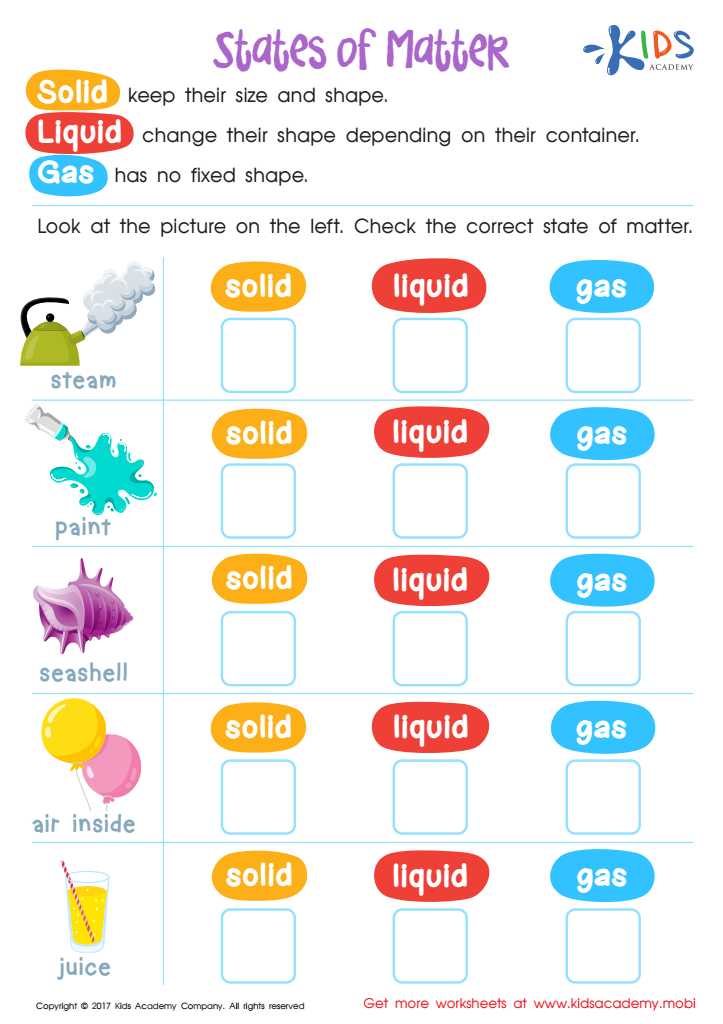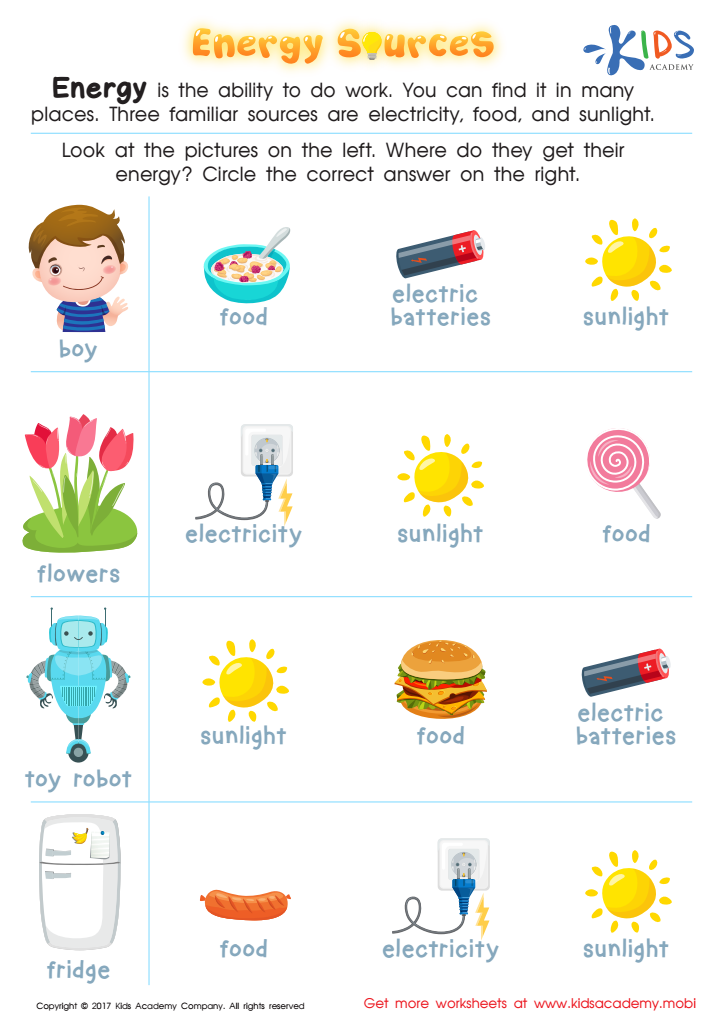Physical Science Worksheets for Ages 3-7
3 filtered results
-
From - To
Discover engaging Physical Science worksheets designed specifically for children aged 3-7. These interactive printable activities make learning key scientific concepts fun and accessible. From exploring the properties of different materials to understanding basic physics principles, our worksheets provide hands-on experiences that ignite curiosity and foster a love for discovery. Ideal for classroom use or at-home learning, each worksheet includes colorful illustrations and simple instructions to help young learners grasp fundamental ideas in an enjoyable way. Give your child a head start in science with our easy-to-follow and educational Physical Science worksheets at Kids Academy.


Physical Science: States of Matter Worksheet


Sink or Float Printable


Energy Sources Printable
Physical Science for ages 3-7 is fundamental in fostering young children's curiosity, cognitive development, and foundational understanding of the world around them. At this tender age, children are naturally inquisitive and inclined to explore their environment. Introducing them to physical science concepts like gravity, magnetism, and the properties of various materials taps into this inherent curiosity.
First, learning about physical science helps develop critical thinking and problem-solving skills. When children ask questions and experiment with objects, they practice observing, hypothesizing, and drawing conclusions—skills crucial for cognitive development.
Secondly, these early experiences lay an essential groundwork for understanding more complex scientific concepts later in their education. Knowledge of basic physical science helps children make sense of everyday phenomena, from why an apple falls from a tree to how objects move or stick together, fostering a coherent worldview that can be built upon as they grow.
Moreover, integrating physical science in early education promotes a hands-on, inquiry-based learning approach. Rather than passively absorbing information, children actively engage in their learning process, which enhances memory retention and makes learning more enjoyable.
Lastly, early positive experiences with science can foster a lifelong interest in the subject, potentially guiding children towards STEM (Science, Technology, Engineering, Mathematics) paths in the future, which are increasingly valuable in the modern world. This better equips them for future career opportunities and cultivates a generation of analytical, innovative thinkers.
 Assign to My Students
Assign to My Students















